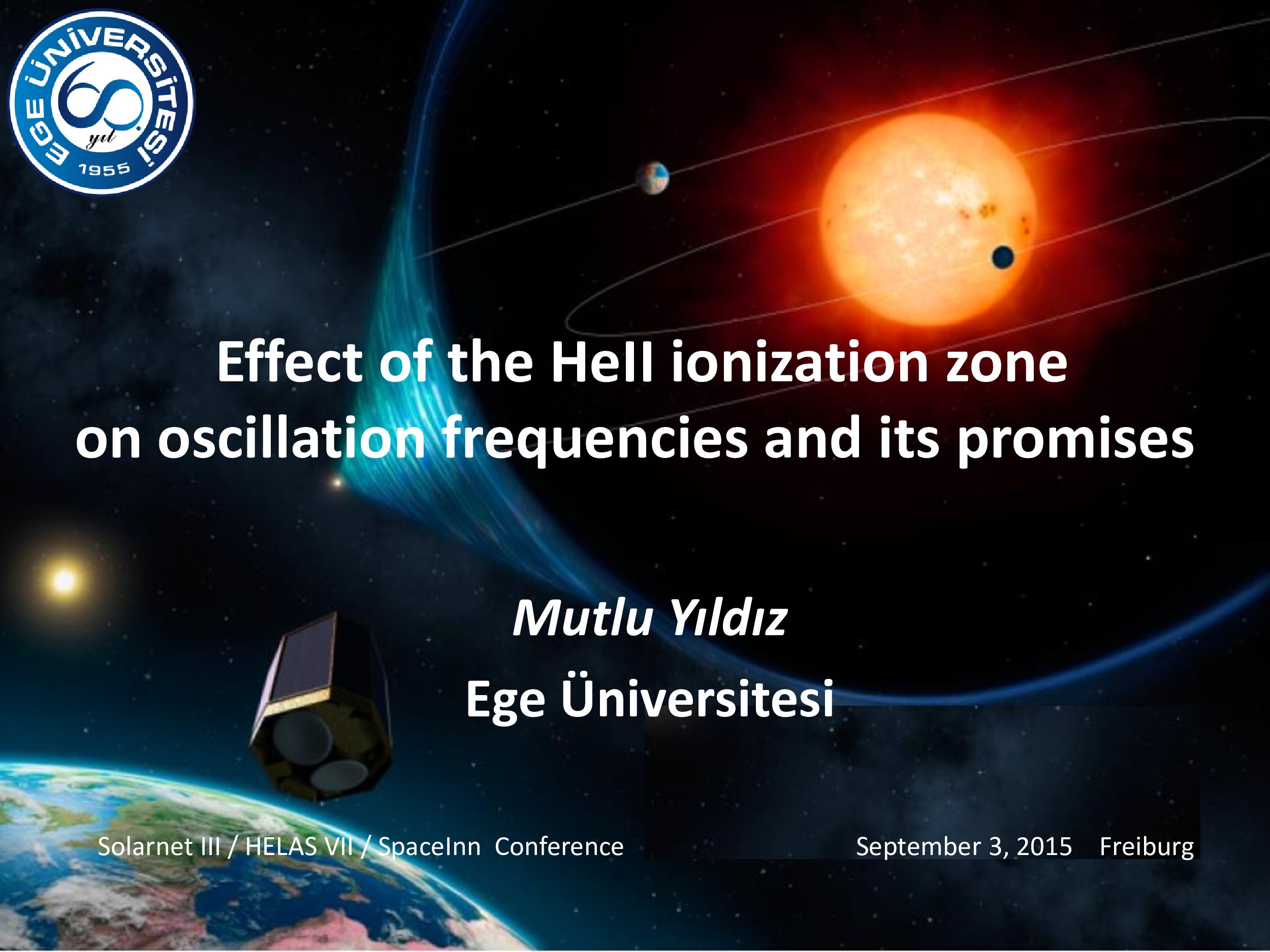Affiliation
Ege University
Main category
Natural Sciences (Astrophysics and Astrononmy)
Abstract
Low amplitude is the defining characteristic of solar-like oscillations.
The space projects Kepler and CoRoT give us a great opportunity to
successfully detect such oscillations in numerous targets.
Achievements of asteroseismology depend on new discoveries of connections
between the oscillation frequencies and stellar properties. In the previous
studies, the frequency of the maximum amplitude and the large separation
between frequencies were used for this purpose. In the present study, we
confirm that the large separation between the frequencies has two minima at
two different frequency values. These are the signatures of the He {\small II} ionization
zone, and as such have very strong diagnostic potential. We relate these minima
to fundamental stellar properties such as mass, radius, luminosity, age and mass
of convective zone. For mass, the relation is simply based on the ratio of the
frequency of minimum Δν to the frequency of maximum amplitude.
These frequency comparisons can be very precisely computed, and thus the
mass and radius of a solar-like oscillating star can be determined to high
precision. We also develop a new asteroseismic diagram which predicts structural
and evolutionary properties of stars with such data. We derive expressions for mass,
radius, effective temperature, luminosity and age in terms of purely asteroseismic
quantities. For solar-like oscillating stars, we now will have five very
important asteroseismic tools ( two frequencies of minimum Δν, the
frequency of maximum amplitude, and the large and small separations between the
oscillation frequencies) to decipher properties of stellar interior astrophysics.
Do you have problems viewing the pdf-file? Download presentation
here
If the presentation contains inappropriate content, please
report the presentation. You will be redirected to the landing page.
